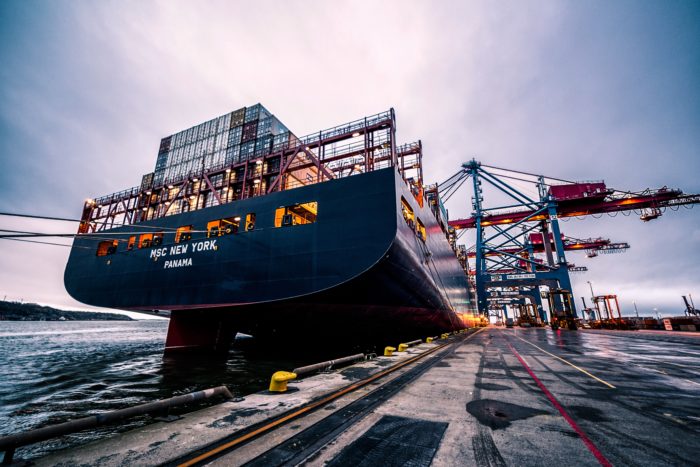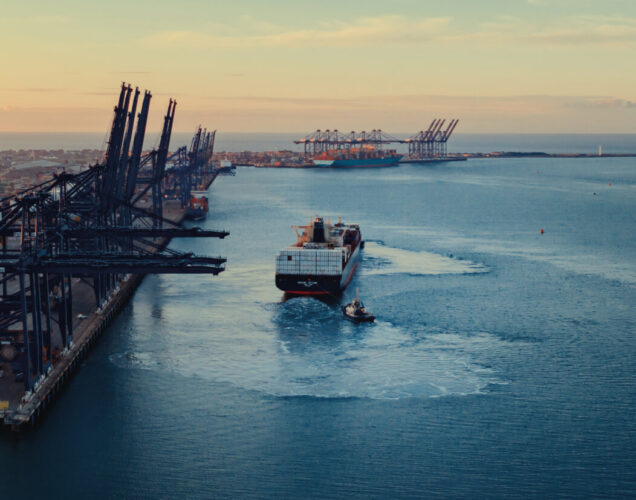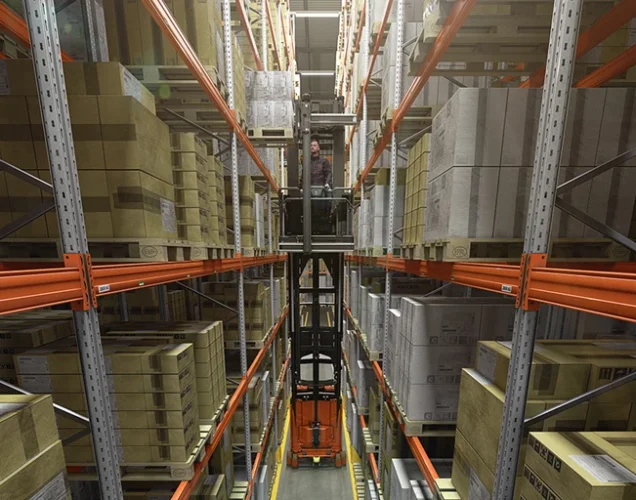Here at Hemisphere Freight Services (HFS), we have been transporting goods for 30 years and have used many of the world’s ports and airports, whether for importing retail goods or exporting high-quality British produce.
We deal with international ports on a daily basis, and have seen the status of both seaports and airports fluctuate over the years as a result of such things as investment, political or economic changes. Here, we run down the busiest seaports and freight-handling airports in the world.
Top 5 Busiest Seaports
Four of the top five – and seven of the top ten – busiest seaports in the world are situated in China. As it’s the world’s largest trading nation, that comes as no surprise.
1.Port of Shanghai
This bustling port at the mouth of the Yangtze River is the size of 470 football pitches and handles over one quarter of the volume of China’s international trade. The port is helped by an advantageous geographical location coupled with a robust infrastructure for inland distribution, and is credited with having made China the largest trading nation in the world. Each month, in excess of 2,000 container ships head out from the port to carry goods around the globe.
2.Port of Singapore
The Port of Singapore, located on the southern end of the Malay Peninsula, hosts some 140,000 vessels per year and is one of the biggest refrigerated container ports on the planet. It also handles around one fifth of the world’s shipping containers and half of the annual supply of crude oil. The process of importing natural resources – including crude oil – refining them and then re-exporting them, is a key element of the port’s activity.
3.Port of Shenzhen
This actually comprises a number of ports – including Yantian, Dachan Bay and Xiagong – that are set along the Guangdong province coastline, which stretches for some 162 miles. Shenzhen is one of the world’s fastest-growing container ports and is also known as both a “green” and a “smart” port. In June 2019 a “sister port” cooperation agreement with the ports of Genoa was signed, which will allow Italian counterparts to learn from Shenzhen’s established good practices and develop Genoa as a green transport hub.
4.Port of Ningbo-Zhoushan
Ningbo Port was established in 738, during the Tang Dynasty, since which time it has been one of China’s major seaports. In 2006 it merged with the neighbouring Port of Zhoushan, and the resulting combined cargo-handling centre is the largest in the world in terms of tonnage. It is also a hub port for the transit and storage of domestic iron ore, crude oil, coal and liquid chemical products. The port sits in Zhejiang province, on the coast of the East China Sea.
5.Hong Kong Port
The Port of Hong Kong serves as an economic gateway to mainland China. It sits on the deep waters of the South China Sea, in the natural shelter provided by Victoria Harbour. This confers advantage in that conditions are ideal for the berthing and handling of any type of vessel. Unsurprisingly, the port is one of the busiest in the world in terms of shipping movements, cargo handled and passengers carried. High handling fees at the container terminals make Hong Kong Port unique in operating at-sea loading and unloading.
Top 5 Busiest Airports
In terms of passenger volumes, airports in the United States represent the highest total turnover. However, when it comes to freight, three of the top five global airports by total cargo tonnage are located in Asia.
1.Hong Kong International Airport (HKG)
Based on preliminary 2018 figures from the Airport Council International (ACI), Hong Kong International moved a total of 5.12 million tonnes of cargo, representing an increase of 1.4% from the previous year. With some 65,000 employees, more than 100 individual airlines operate out of Hong Kong. It has been the world’s busiest international airport by cargo traffic since 2010.
2.Memphis International Airport (MEM)
From 1993 to 2009, Memphis International was the world’s busiest airport by cargo tonnage, and it still comfortably holds second place on the air freight league table. Moving some 4.47 million tonnes of cargo in 2018, Memphis operates as a global hub for FedEx Express, transporting cargo both within the United States and internationally to Canada, South America, Europe, the Middle East and Asia. Although the total cargo tonnage moved through Memphis has fallen behind Hong Kong in recent years, it remains the premier cargo airport in the West.
3.Shanghai Pudong International Airport (MEM)
According to ACI figures, Shanghai Pudong International moved just under 3.77 million tonnes of freight cargo in 2018, a reduction of 1.5% from the previous year. Pudong operates as an Asia-Pacific cargo hub for cargo airlines including DHL, FedEx and UPS. Expansions to Pudong Airport have been planned since 2015, which will increase its total cargo capacity to 6 million tonnes per year.
4.Incheon International Airport (ICN)
South Korea’s Incheon International Airport moved over 2.95 million tonnes of cargo in 2018, a slight increase of 1% from the year before. Around two thirds of all cargo processed at Incheon is handled by national carriers Korean Air and Asiana Airlines, with the remaining third carried by international airlines. As a passenger airport, Incheon has gained a global reputation for excellence, rated the best airport worldwide by ACI every year since 2005.
5.Ted Stevens Anchorage International Airport (ANC)
Anchorage International Airport is on the up in terms of cargo transport, with 2018’s figure of over 2.80 tonnes representing an increase of some 3.5% against 2017. FedEx and UPS both use Anchorage as an international cargo hub for freight to and from the Far East. FedEx’s Anchorage cargo centre alone has over 1,200 employees and handles over 13,000 packages per hour.
Working with the World’s Busiest Ports
Hemisphere Freight Services is one of the largest independent UK providers of logistics solutions across Europe, Asia, North America, South America, Africa and Australasia. With 30 years’ experience working with the busiest ports in the world, we can take care of every aspect of your cargo needs from start to finish.
You can rely on us to find you the most efficient and cost-effective air or ocean freight solution for transporting your goods, regardless of point of origin or destination, and we’ll also take care of the customs processes and other administrative requirements on your behalf, saving you the hassle.
Please get in touch with a member of the team for further guidance or to discuss your logistics requirements.







